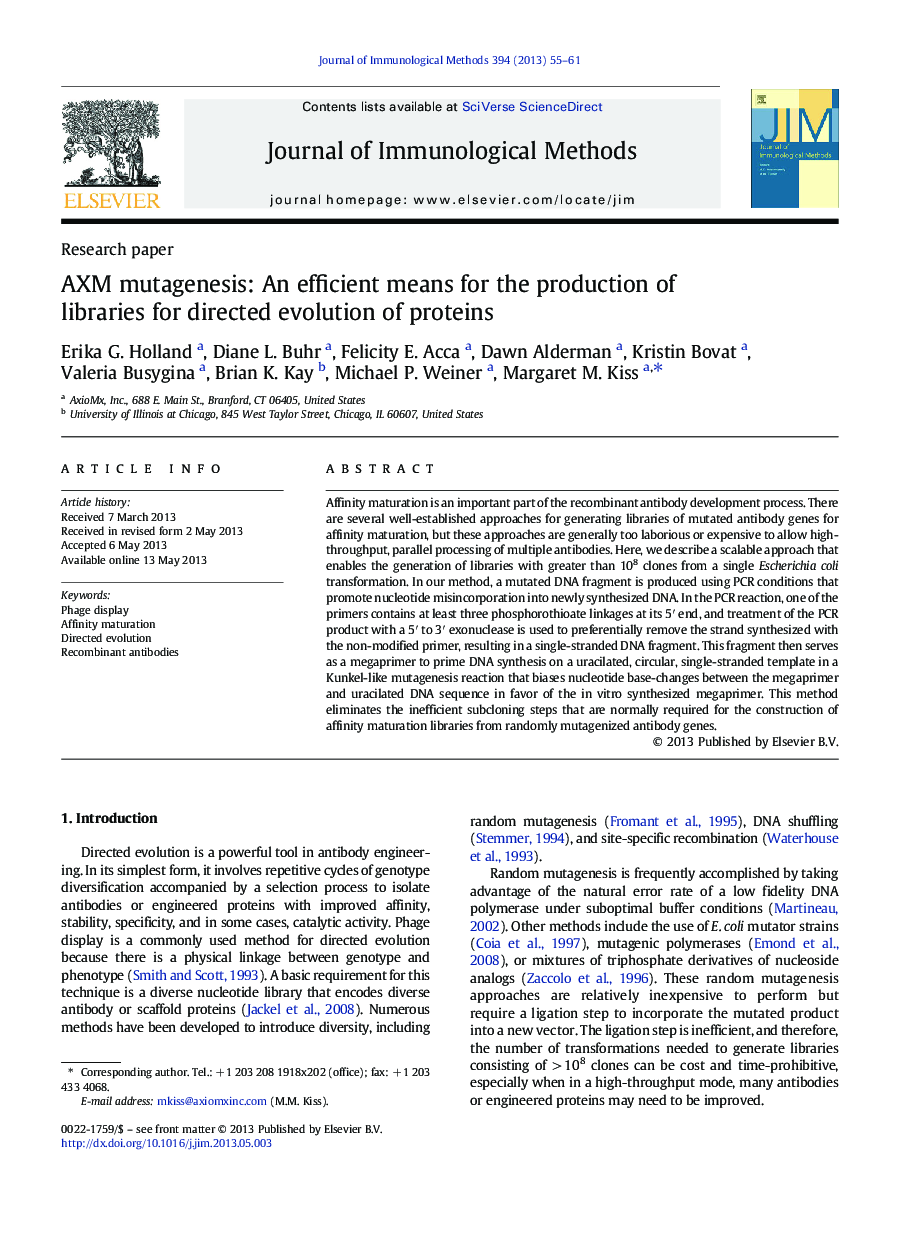| Article ID | Journal | Published Year | Pages | File Type |
|---|---|---|---|---|
| 8418094 | Journal of Immunological Methods | 2013 | 7 Pages |
Abstract
Affinity maturation is an important part of the recombinant antibody development process. There are several well-established approaches for generating libraries of mutated antibody genes for affinity maturation, but these approaches are generally too laborious or expensive to allow high-throughput, parallel processing of multiple antibodies. Here, we describe a scalable approach that enables the generation of libraries with greater than 108 clones from a single Escherichia coli transformation. In our method, a mutated DNA fragment is produced using PCR conditions that promote nucleotide misincorporation into newly synthesized DNA. In the PCR reaction, one of the primers contains at least three phosphorothioate linkages at its 5â² end, and treatment of the PCR product with a 5â² to 3â² exonuclease is used to preferentially remove the strand synthesized with the non-modified primer, resulting in a single-stranded DNA fragment. This fragment then serves as a megaprimer to prime DNA synthesis on a uracilated, circular, single-stranded template in a Kunkel-like mutagenesis reaction that biases nucleotide base-changes between the megaprimer and uracilated DNA sequence in favor of the in vitro synthesized megaprimer. This method eliminates the inefficient subcloning steps that are normally required for the construction of affinity maturation libraries from randomly mutagenized antibody genes.
Related Topics
Life Sciences
Biochemistry, Genetics and Molecular Biology
Biotechnology
Authors
Erika G. Holland, Diane L. Buhr, Felicity E. Acca, Dawn Alderman, Kristin Bovat, Valeria Busygina, Brian K. Kay, Michael P. Weiner, Margaret M. Kiss,
